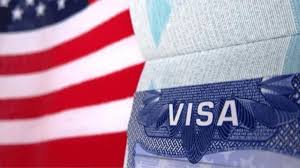Nya ändringar i U.S. visumtidsbokningspolicyer
Indiska medborgare som avser att resa till USA kommer nu att möta striktare villkor för att boka sina visumintervjuer. U.S. Department of State har infört en policy som kräver att sökande av icke-immigrantvisum (NIV) – vilket inkluderar affärskategorin (B1) och turistkategorin (B2) – bokar sina intervjuer uteslutande i sitt medborgarland eller lagliga bosättningsland. Detta innebär att man inte längre kan utnyttja snabbare visumplatser på USA:s konsulat i tredje land, en strategi som många indiska resenärer förlitade sig på under förseningar orsakade av COVID-19.
Innan denna policyändring kunde sökande boka möten i länder som Förenade Arabemiraten (Dubai), Thailand (Bangkok) eller andra tredjestäder för att undvika långa väntetider i Indien. Detta alternativ introducerades ursprungligen som en tillfällig lättnad under pandemin på grund av betydande eftersläpningar orsakade av stängda eller reducerade konsulatoperationer i Indien.
Vilka kommer att påverkas?
- Turister: De som planerar sista-minuten fritidsresor kan nu ställas inför utmaningar med längre visumhandläggningsfördröjningar.
- Affärsresenärer: Individer som behöver delta i brådskande möten eller konferenser måste tillåta ytterligare ledtid för att säkra möten inom landet.
- Studenter och tillfälliga arbetare: Visumansökare inom dessa kategorier måste hantera förväntningar kring schemaläggning av intervjuer strikt inom Indien.
Impact on Travel Planning and International Tourism
Denna striktare policy för visumintervjuer påverkar avsevärt planeringstidslinjerna för resor. Resenärer kan inte längre förlita sig på externa konsulat för att påskynda sina visumprocesser, vilket kräver tidigare planering och ansökan i sitt hemland. Denna justering kräver omprövning av resrutinernas tidpunkt, särskilt när resor beror på tajta scheman.
Sådana visarestriktioner skapar ytterligare hinder för turism och affärsinitiativ som involverar USA, en toppdestination för globala besökare. För den indiska resemarknaden, som redan är en av de snabbast växande utåtriktade sektorerna, kan denna policy driva vissa resenärer att utforska alternativa destinationer eller de med mer flexibla visaprotokoll.
Visa Appointment Scheduling: Then and Now
| Period | Bokningsflexibilitet | Typisk väntetid för indiska sökande | Alternativ för snabbare bokningar |
|---|---|---|---|
| Under COVID-19 (2020-2024) | Tillåtande schemaläggning av visum i tredjeland. | Upp till 3 års väntetid i Indien | Bangkok, Dubai, andra |
| Efter policyändring (2025 och framåt) | Måste schemaläggas i Indien eller i land av bosättning endast | Potentiellt lång, beroende på lokala konsulatets kapacitet | Inga utnämningar från tredjeländer tillåtna |
En historisk perspektiv på visumförmöjlighetsfrågan
Visumregler har historiskt sett balanserat två viktiga intressen: att säkerställa nationell säkerhet och att underlätta internationella resor och turism. Under årtionden har visumregimer anpassats till föränderliga globala omständigheter, inklusive ekonomiska trender och folkhälosituationer.
Alternativet att schemalägga visumintervjuer i tredjeland var till stor del ett nödlägesåtgärd under höjden av COVID-19-pandemin. De tidigare aldrig skådade resebegränsningarna och den stora eftersläpningen fick U.S. Department of State att erbjuda alternativ för sökande som stod inför långa förseningar i sina hemländer.
Innan detta återspeglade rigiditeten i visumplaneringen ofta komplexa geopolitiska och administrativa protokoll, där sökande var tvungna att förlita sig på konsulat inom sina hemland uteslutande. Den nyligen genomförda återgången till detta system indikerar en betoning på starkare immigrationsprocesskontroller och administrativ normalitet.
Visumregler och deras roll i internationell turism
- Visumfacilitering: Förenkling av visumförfaranden kan avsevärt öka turistflödena, eftersom det minskar hinder för resenärer.
- Säkerhetsåtgärder: Regeringar upprätthåller visarestriktioner för att kontrollera invandringen och skydda nationella säkerhetsintressen, ibland på bekostnad av bekvämligheter för turismen.
- Ekonomiska effekter: Restriktioner eller underlättanden påverkar destinationers konkurrenskraft och kan få ringverkningar på sektorer som hotellverksamhet, detaljhandel och lokala ekonomier som är beroende av turism.
Implikationer för indiska resenärare och globala turismtrender
Indien representerar en av de snabbast växande marknaderna för utgående internationell turism. Den växande medelklassen, ökande disponibla inkomster och utvidgad global affärsverksamhet driver efterfrågan på resor till framstående destinationer som USA, Europa, Sydostasien och Mellanöstern.
De nya reglerna för visumansökningar kräver att indiska resenärer inkluderar längre handläggningstider i sin reseplanering, vilket kan påverka destinationsval och resebeteenden. I sin tur påverkar detta olika sektorer av reseekonomin, inklusive flygbolag, researrangörer och leverantörer av hotell- och turisttjänster.
Nyckeltrender och överväganden
- Förplanering är avgörande: Resenärer bör räkna med längre väntetider och ansöka om visum i god tid före avreseplanerade datum.
- Utforska alternativa destinationer: Med utmaningar i att skaffa visum till USA kan vissa resenärer eventuellt ändra riktning mot destinationer som erbjuder visum vid ankomst eller e-visum.
- Impact on Business Travel: Företag behöver anpassa sig till de tajtare visumtidslinjerna, vilket påverkar evenemangsplanering och mötesarrangemang som involverar indiska yrkesverksamma.
- Potentiell för policyutveckling: Visumregler kan förändras med skiftande geopolitiska eller folkhälolägen, så att hålla sig informerad är avgörande.
Slutsats: Navigera i det skiftande visumlandskapet
The tightened U.S. visa rules mark a notable change for Indian nationals familiar with using third-country appointments as a shortcut through lengthy waitlists. This adjustment underscores the importance of early travel planning, especially when the U.S. is the desired destination for business, education, or leisure.
As the global travel industry continues to recover and evolve post-pandemic, visa regulations will remain a dynamic factor influencing international tourism flows and traveler experiences.
For those drawn to coastal escapes, lakeside retreats, or ocean voyages in regions where sailing yachts and boats abound, navigating visa requirements early will be key to seamless adventuring.
GetBoat.com—an international marketplace for renting sailing boats and yachts—is well aware of how travel regulations influence plans and is ready to help travelers find the perfect yacht charter or boat rental to complement their journeys. Whether seeking serene marinas or thrilling open water adventures, GetBoat.com offers choices designed to suit every taste and budget, making the most of any destination’s natural water appeal.

 US Restricts Quick US Visa Appointments for Indian Nationals">
US Restricts Quick US Visa Appointments for Indian Nationals">
